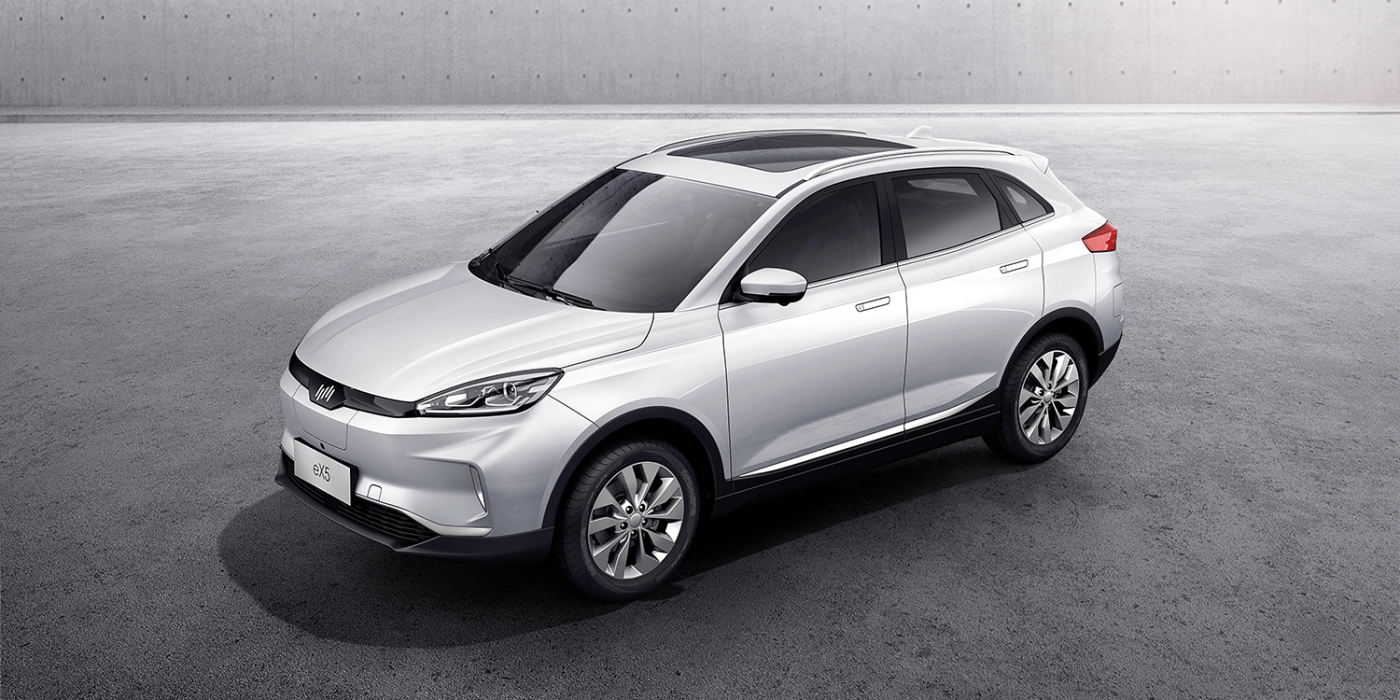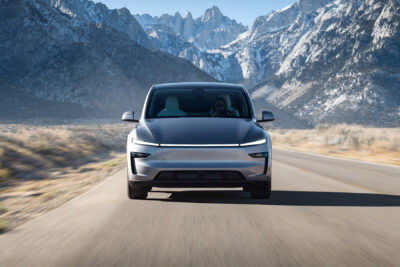WM Motor begins recall after vehicle fire
The Chinese startup WM Motor has recalled 1,282 of its EX5 electric cars after four of its vehicles caught fire within one month. This is the latest of a number of large recalls made by carmakers in Asia, Europe and North Americain the last few weeks due to battery problems.
WM Motors has made the recall of the EX5 produced between 8 June 2020 and 23 September 2020, due to possible contaminants in the supplied battery cells. This could lead to a short circuit in these vehicles, causing a sharp rise in heat in the battery pack, which – if it gets out of control – could lead to thermal runaway. The recall was announced on the state market regulation authority website.
The affected vehicle is the EX5, the brand’s first model. The E-SUV has been sold since 2018 and is offered with three battery variants for a range of 300, 400 or 460 kilometres according to NEDC. Whether only one or all of these versions are affected by the recall was not revealed by the Chinese news sites reporting the recall.
As for the batteries of either model, the Shanghai-based automotive startup obtains the cells for its electric cars from several different suppliers. A report by Yicai Global reports that the startup uses CATL batteries as well as batteries from Zhejiang Gushen Energy Technology, Suzhou Yuliang Battery, Tianjin Lishen Battery Joint-Stock, Jiangsu Tafel New Energy Technology, REPT Energy and ZTE Gaoneng Technology.
During the recall, the traction battery is to be replaced and the new battery is to receive cells from another supplier. The news website Yicai Global writes that the first three vehicle fires have already been analysed. These show that the fault is due to contamination in the battery cell. At the time the report, the investigation into the fourth fire was not yet complete.
At the beginning of July this year, the company announced that the 30,000th EX 5 had been delivered, which put the startup in second place behind Tesla Model 3 in terms of the number of sales. This was followed in November 2019 by the EX6, of which almost 900 units were registered in the first half of 2020.
The Chinese startup is not alone with recalls due to battery trouble. This is the latest in a veritable flurry of electric vehicle recalls this month. In the first week of October Hyundai had to recall Kona Electric cars in South Korea, which initially involved some 25,000 models. By the middle of this month, it became clear that models sold overseas were also affected with reports that now affects around 77,000 Kona Electric.
Also at the beginning of this month, but now in Europe, it became clear that following reports of problems with the all-electric Polestar 2 after deliveries started just a few weeks before, Chinese-owned Swedish company confirmed that they detected “a software error in the battery power control module, which, in very rare cases and without warning can lead to a loss of drive”. A week later we reported BMW is having a major recall of their PHEVS. The total number of vehicles involved is 26,700 worldwide. One-third of these units are in customers’ hands; the rest are subject to a delivery stop. These recalls are, like the WM Motors recalls, due to possible impurities in the production process of the battery cells which an increased risk of fire in several series.
North America carmakers have not been spared by this month’s flurry of recalls due to battery troubles. Just a day after we reported the BMW recalls, it became clear that Ford was having trouble getting its Kuga PHEV battery problems under control with sales stops and some 20,000 recalls of Kuga PHEVs across Europe. Just two days later we reported that Chevy Bolt was launching an investigation in response to complaints about Chevrolet Bolt electric cars catching fire. Again, there appears to be a problem with the batteries. So far, there has not been an official recall.
There is nothing to suggest that it is more than coincidence that so many vehicles were recalled due to battery troubles by major carmakers from three continents this month. At the same time, the flurry of recalls due to battery problems will no doubt reflect and prompt steep learning curves for the electric car and battery companies involved.
With additional reporting by Carrie Hampel





0 Comments